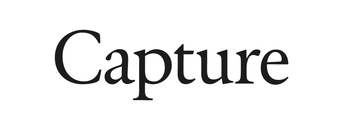April 1 - April 30, 2022
It’s been a century since the golden days of polar exploration, where legendary expedition photographers like Frank Hurley and Herbert Ponting famously documented the early Antarctic voyages of Robert Falcon Scott and Ernest Henry Shackelton. Yet, the collective idea of the ‘White Continent’ remains mostly unchanged – that of an isolated environment of icebergs, penguins, and jagged mountains, mostly devoid of humans. In this exhibition, Vancouver photographer Jeff Topham exposes a fresh angle on Antarctica. These images from voyages south as Photographer-in-Residence for a Canadian expedition travel company show that, these days, there is more than just ice and snow.
Reaching the seventh continent is now significantly easier than in Shackelton’s day – 75,000 people visited Antarctica in 2019. For those who do undertake the journey, photography still carries much of the same importance and purpose as it always has: to share images of a place few have seen and for scientific and educational purposes. Above all photography feeds the human need to prove ‘I was there.’ The increased human presence, combined with the ever-increasing effects of climate change, is placing the continent’s once pristine ecosystem under significant new pressure.
This exhibition pays homage to the early days of polar exploration while updating it for the current age. Topham challenges the Antarctic myth, asking us to question our responsibility as tourists in one of the planet’s last relatively untouched places, while also reminding us of our deep connection to the natural world – and ultimately, inspiring the will to protect it.
It’s been a century since the golden days of polar exploration, where legendary expedition photographers like Frank Hurley and Herbert Ponting famously documented the early Antarctic voyages of Robert Falcon Scott and Ernest Henry Shackelton. Yet, the collective idea of the ‘White Continent’ remains mostly unchanged – that of an isolated environment of icebergs, penguins, and jagged mountains, mostly devoid of humans. In this exhibition, Vancouver photographer Jeff Topham exposes a fresh angle on Antarctica. These images from voyages south as Photographer-in-Residence for a Canadian expedition travel company show that, these days, there is more than just ice and snow.
Reaching the seventh continent is now significantly easier than in Shackelton’s day – 75,000 people visited Antarctica in 2019. For those who do undertake the journey, photography still carries much of the same importance and purpose as it always has: to share images of a place few have seen and for scientific and educational purposes. Above all photography feeds the human need to prove ‘I was there.’ The increased human presence, combined with the ever-increasing effects of climate change, is placing the continent’s once pristine ecosystem under significant new pressure.
This exhibition pays homage to the early days of polar exploration while updating it for the current age. Topham challenges the Antarctic myth, asking us to question our responsibility as tourists in one of the planet’s last relatively untouched places, while also reminding us of our deep connection to the natural world – and ultimately, inspiring the will to protect it.
About Jeff Topham
Jeff Topham is a Canadian documentary photographer whose diverse work has taken him from post-war Liberia to Antarctica, the Arctic and the Amazon basin. His photographs of post-conflict Liberia and award-winning documentary film and online photo project Liberia 77, about the war-torn country reclaiming its photographic and cultural legacy, were featured at the Annenberg Space for Photography in Los Angeles and in the first post-war photographic exhibition at the National Museum of Liberia in Monrovia. His work has been featured in The Guardian, Canadian Geographic and The Globe and Mail. He also specializes in production stills; recent clients include the National Film Board of Canada, CBC, and Netflix. He lives in Vancouver with his wife Katie, and his one-year-old son, Ace.
















